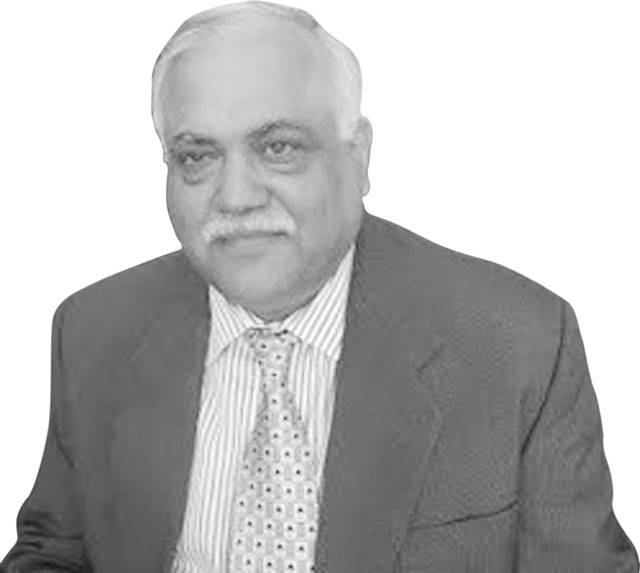Türkiye’s President Recep Tayyip Erdogan is a towering personality of contemporary times. He has defied projections of the Western media to emerge as a clear winner in the presidential elections. President Erdogan’s victory in the run-off vote gives him a third five-year term as the President. In his roughly twenty years of rule since 2003, he has served as the Prime Minister for three terms. His Justice and Development (AK) Party went into May 2023 elections heading a coalition under ‘People’s Alliance’ that also won the parliamentary elections. AK Party has now won more than a dozen elections, on the trot. This is an enviable record.
Larger than life Erdogan is a visionary who deeply empathizes with the aspirations of the common man in Türkiye. He has worked tirelessly to bring about substantial positive changes in their lifestyle. As a popular leader, he knows the art of connecting with the people and touching their hearts. He is a gifted and charismatic leader. But the main reason for his continued success and popularity is his strong performance record. Despite serious economic difficulties in recent years, the majority of people have kept faith in his leadership.
Today, despite serious challenges, Türkiye’s over 900-billion-dollar economy is ranked 19th largest in the world. The World Bank acknowledges that Türkiye pursued “ambitious reforms and enjoyed high growth rates between 2006 and 2017 that propelled the country to the higher reaches of upper-middle-income status and significantly reduced poverty”. Türkiye is a member of the G20 and the OECD and, and “an increasingly important donor of Official Development Assistance”.
During his long rule, President Erdogan brought about a veritable transformation in the country’s infrastructure and its industrial, agriculture, and services sectors grew exponentially. Building on his successful experience as the Mayor of Istanbul (1994-98), he gave special attention to social sectors like health and education and the provision of basic amenities throughout the country. The urbanization challenge was handled skilfully which catapulted the Turkish construction sector to become the second largest in the world only behind China. At its peak, the Turkish annual tourism revenues surpassed 30 billion dollars. Fruits of development reached remote parts of the country, cementing the AK party’s support base.
Under Erdogan, Türkiye has strengthened its strong indigenous capacity in defence production. The Turkish Aerospace Industries (TAI) has become Turkey’s centre of technology in the design, development, modernization, and manufacturing of aerospace systems. TAI’s expertise includes the licensed production of General Dynamics F-16 fighter jets. It produces, among others, a turboprop Hurkus training aircraft; a T129 attack helicopter; a large variety of modern Unmanned Combat Air Vehicles (UCAVs) (Bayraktar TB-2, Bayraktar Ikinci, Bayraktar Kizalelma, and Anka series). TAI has recently rolled out the prototype of its indigenously designed fifth-generation fighter jet named Kaan. Türkiye produces a variety of navy frigates and corvettes. Recently, it has produced its first amphibious assault ship that can be configured as an aircraft carrier called TCG Anadolu, mainly for UCAVs.
Incumbency has its costs. In the long AK Party rule, despite its brilliant record of all-around successes, there have also been setbacks, partly eroding the support base of Erdogan, especially in big urban centres. Within the ruling party, many founder members parted ways. Two key partners, Ahmed Davutoglu the former foreign minister and later Prime Minister under the AK Party, and Ali Babacan the former deputy prime minister of Erdogan established their separate political parties and joined the opposition alliance of Kemal Kilicdaroglu in the present elections. Many stepped aside after the failed coup attempt by Gulen supporters in 2016.
In recent years, the global economic downturn and other external factors like the war in Ukraine have hurt the Turkish economy. According to the World Bank, ‘productivity growth has slowed as reform momentum has waned’. “..Efforts have turned to supporting growth with credit booms and demand stimulus, intensifying internal and external vulnerabilities”. “High private sector debt, persistent current account deficits, run-away inflation, and high unemployment have been exacerbated by macro-financial instability since August 2018.”
On the external front, the costliest miscalculation of Erdogan’s government was about Syria. This embroiled the country in the Syrian war and has saddled Türkiye with 3.7 million refugees.
What concerns the West the most about President Erdogan being at the helm is Türkiye’s clear and unmistakable ideological drift. Also, despite Türkiye’s NATO membership, Erdogan has promoted links with Russia and China and has played an assertive role in the region.
Erdogan’s re-election promises continued political stability, strong leadership, and better chances to surmount current economic woes in Türkiye. Erdogan is viewed as an inspirational leader in the Islamic world, including Pakistan. In the current turbulent times, Turkey under Erdogan will be an important factor of stability in the broader region.
Sunday, May 19, 2024
Charismatic Erdogan

The writer is a retired ambassador and Director of Foreign Affairs at the Centre for Aerospace and Security Studies (CASS), Lahore, Pakistan. He can be reached at casslahore@gmail.com.
PPP rejects in-house change proposal in Azad Kashmir
2:58 PM | May 19, 2024
PM directs to make arrangements to bring back Pakistani students from Kyrgyzstan
2:10 PM | May 19, 2024
Ishaq Dar’s Kyrgyzstan visit ‘cancelled’
12:59 PM | May 19, 2024
SIFC’s project Green Tourism revolutionizing tourism sector in GB
12:42 PM | May 19, 2024
Punjab CM, Japanese envoy discuss ways to strengthen bilateral trade & investment
12:35 PM | May 19, 2024
NEPRA’s Neglect
May 19, 2024
Colonial Grip
May 19, 2024
Confrontational Politics
May 19, 2024
Sports & Genocide
May 18, 2024
Healing AJK
May 18, 2024
Unsung Heroes of Society
May 19, 2024
Water Shortage in Our Area
May 19, 2024
The AI Trap
May 19, 2024
Continuing Narrative of Nakba
May 18, 2024
Teacher Struggles
May 18, 2024
ePaper - Nawaiwaqt
Advertisement
Nawaiwaqt Group | Copyright © 2024





